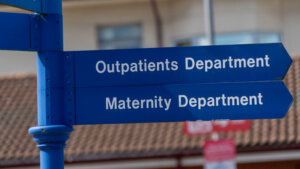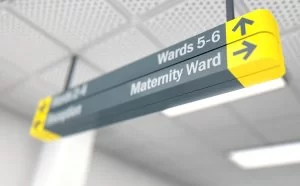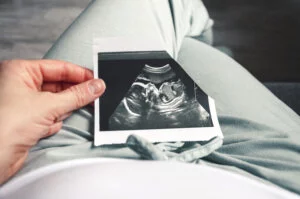NHS Compensation Payouts Guide

Contact
Table of Contents
What Are NHS Compensation Payouts?
In the UK, the National Health Service delivers the vast majority of healthcare services. When these services are not up to standard and result in harm or injury to a patient, making a medical negligence compensation claim may be necessary to get your life back on track.
You may feel conflicted about this. Tales of underfunding are rife in the media, and you may worry that making a claim against the NHS will add to its financial burden.
However, in 1995, the government set up NHS Resolution (formerly known as the NHS Litigation Authority) as the claims management wing of the NHS. The system operates like an insurance company. All NHS trusts pay into the scheme, so when a successful claim is made, the payment comes from the NHS Resolution pot, not the NHS budget.
What Are NHS Compensation Payouts Available For?
NHS compensation payouts are designed to provide financial support to individuals who have suffered harm due to substandard medical care within the NHS. These payouts address various situations where medical negligence has occurred, including hospital negligence, substandard medical care, medical accidents, birth injuries, and surgical errors.
Compensation acknowledges the harm caused by such incidents and helps those affected rebuild their lives. Whether it’s a case of misdiagnosis, delayed treatment, or surgical mistakes, medical negligence compensation alleviates the financial and emotional burden on patients and their families.
What’s the average payout for medical negligence?
The idea behind clinical negligence compensation payouts is that the compensation should restore you to the standard of living you had before the incident. It’s hard to nail down average payouts as the settlement depends on the specifics of your claim.
The Judicial College publishes guidelines for claims related to medical negligence, but these are just guidelines, and individual cases will differ.
The guidelines suggest ranges for different types of injuries, such as brain damage and back injuries. Very severe brain damage, for instance, ranges from £282,010 to £403,990, while minor brain or head injuries range from £2,210 to £12,770.
In the case of back injuries, severe injuries compensation ranges from £38,780 to £160,980, depending on the severity and specifics of the injury.
Factors influencing compensation amounts
When you claim compensation in medical negligence cases, the amount consists of general damages and special damages.
General damages
General damages compensate you for the pain and suffering the injury has caused you. It considers the severity of the injury, your prognosis, and the impact this injury has had (and will continue to have) on your ability to enjoy life.
Usually, you’ll have a medical assessment to evaluate the various aspects of your injury and how it has impacted your life.
General damages extend to mental as well as physical injury. If medical negligence has a negative psychological impact on your life, then the compensation you receive should cover this, too.
Special damages
Special damages cover specific financial losses that relate to your injury. These financial losses may involve:
- Medical bills
- At-home care costs
- Travel expenses
- Adaptation of your home
- Specialist equipment such as walking aids or prosthetics
- Loss of earnings
- Future loss of earnings, should you no longer be able to work effectively in your field of expertise
Special damages will be different in each case. Your solicitor will be able to give you the best and most accurate outlook of what damages you are able to claim.
NHS Resolution report insights
Each year, NHS Resolution releases a report that provides valuable insights into compensation claims and medical negligence claims against the NHS. Between 2022 and 2023:
- There were 13,511 new clinical negligence claims. This equates to over 37 daily claims—or one every 40 minutes!
- The number of claims against hospital trusts increased by 3.3%, and the number of GP negligence claims increased by 45%.
- 80% of claims are settled without court proceedings being issued.
- 51% of the claims resulted in the payment of damages.
- Maternity negligence is the costliest area, accounting for 64% of the value of all claims.
In 2018, NHS Resolution paid out a record £37 million to a six-year-old boy who suffered catastrophic brain damage during his birth. A few million-pound payouts like this make the headlines each year.
However, the average payout is much lower. It’s hard to give an exact figure as most records of what patients receive are confidential as a condition of them being settled out of court.
Judicial College Guidelines
The Judicial College publishes guidelines for the general damages aspect of personal injury claims, including those for claiming compensation in medical negligence cases. These guidelines set out tariffs of compensation per injury type to ensure some consistency in settlement amounts.
Various tables help solicitors calculate how much compensation you should receive. The amounts differ depending on your age, the severity of your injury, whether you can continue to work, and other factors.
Who is eligible for NHS Compensation?
If you’ve suffered harm at the hands of an NHS professional, you may be eligible for clinical negligence compensation if the incident:
- Happened in the past three years
- Was somebody else’s fault
- Caused you injury, further harm, complications, or pain
If so, you could be able to make a compensation claim against the NHS. The simplest way to find out whether you could make an NHS negligence claim is to arrange a callback or contact us on 020 4502 7309.
In most cases, you must start a medical negligence compensation claim within three years of discovering something went wrong with your medical treatment.
There may be other exceptions to the time limit in certain circumstances, so contact us to discuss your case.
Calculating NHS Compensation Payouts
Calculating NHS compensation payouts involves a complex process that considers various factors, including the severity of the harm suffered, the financial impact of the negligence, and any ongoing or future care needs.
Compensation is generally divided into two categories: general damages and special damages. General damages compensate for the pain and suffering caused by the injury, while special damages cover specific financial losses related to the injury, such as lost wages or medical expenses.
Given the intricacies involved, a specialist solicitor is essential to ensure you receive the right amount of compensation. They will meticulously assess your case, gather necessary evidence, and advocate on your behalf to secure a fair settlement.
How to increase your chances of a successful claim
Choose competent lawyers
While NHS Resolution prefers to settle out of court, this doesn’t mean they simply hand over the money. The first and most important step in claiming compensation is to find competent lawyers who can prove you have the grounds for a medical negligence claim, namely:
- The NHS practitioner failed in their duty of care towards you
- You suffered harm as a result, and
- The harm and injury you suffered is directly linked to the practitioner’s actions
These issues are not straightforward. Often, the patient was already suffering with an injury or health condition when they received treatment. It can be difficult to establish a link showing that the medical care (or lack of it) caused the harm, and it was not caused by a deterioration in the underlying medical condition.
There are a lot of in-depth investigations to do involving expert opinions and complex evidence. Your choice of solicitor can make all the difference between a successful or unsuccessful claim.
Gather evidence
Medical records form the basis of your claim compensation, but they may only tell one side of the story. Your solicitor will also need to review:
- Your detailed account of what happened
- Any supporting documents (e.g. hospital records, medical prescriptions, details of conversations you had with medical staff)
- Statement from any witnesses
- Photographs of the injuries or damages caused by the negligence
- Records of expenses that demonstrate what you have lost as a result of the clinical negligence
In most medical negligence cases against the NHS, your medical negligence solicitor will seek a report from one or more independent medical experts on your behalf. The expert will provide an impartial medical assessment of the quality of care provided.
Their medical opinion will be critical to determine whether the standard of care provided by the NHS was reasonable and, therefore, whether you should pursue a claim.
Understand the claims process
Claiming medical negligence is separate from making a complaint about your NHS care. Understanding the compensation claims process is crucial for a successful outcome.
If you want to talk to the NHS about your experiences and have them investigate the matter, you can talk to an NHS staff member or Patient Advice and Liaison Service (PALS) to get the ball rolling. This is a good option if you simply seek an apology and a sense of closure.
If you are thinking about bringing a claim against the NHS, there are four broad steps:
- Start by giving us a call. We’ll work together to gather as much evidence as possible, such as your medical records, statements from witnesses and receipts for your expenses.
- We will arrange for a medical specialist to examine you and send a report back to us. This report will help us prove that the NHS did not live up to the right medical standards and caused you harm as a result. Once we have a solid case, we will send a Letter of Claim to NHS Resolution.
- The NHS has four months to respond. We use this time to calculate a fair compensation figure for your injuries.
- If the NHS does not admit liability, then we may have to take this further. You may have to meet with a barrister and go to court, but this is very rare.
No Win No Fee Claims
Most medical negligence claims are handled on a no-win, no-fee basis, which means there is no financial risk to the claimant. If the claim is successful, the claimant will pay the solicitor’s fees, which can be covered by the defendant or deducted from the compensation award.
The claimant will not be responsible for the solicitor’s fees if the claim is unsuccessful. This arrangement, known as a conditional fee agreement, allows individuals to pursue a medical negligence claim without worrying about the financial implications. It provides peace of mind and ensures everyone has access to justice, regardless of their financial situation.
Benefits of Making a Claim
Making a medical negligence claim can have several benefits beyond financial compensation. It can lead to an apology and an explanation for the treatment and injuries received, providing a sense of closure and justice for those affected.
Additionally, pursuing a claim can help identify areas where healthcare is not being delivered safely, prompting improvements in patient care. This benefits the claimant and contributes to the overall safety and quality of NHS services. By holding healthcare providers accountable, you can prevent similar incidents from happening to others.
Impact of Medical Negligence Payouts on the NHS
The NHS paid out £2.8 billion to patients in 2023/24. With payouts of this magnitude, we understand that many patients are concerned about the burden of making claims on the public purse. For more detailed information, you can refer to an NHS compensation payouts guide that explains the financial and systemic impacts of these payouts.
However, remember that a successful NHS negligence claim does not strip money from NHS budgets. Compensation is paid by NHS Resolution, which acts as the NHS’s insurer. NHS Resolution is funded by individual NHS Trusts, which the taxpayer funds.
In addition, an important effect of making a claim to NHS Resolution is that it helps the NHS identify the areas where healthcare is not being delivered safely. This makes it easier for NHS staff to learn from mistakes and improve patient safety.
Getting Help with Your Claim
If you or a loved one has suffered due to medical negligence, seeking help from a specialist solicitor as soon as possible is essential. A medical negligence solicitor can provide expert advice and support throughout the claims process, ensuring you receive the right amount of compensation.
They can help you navigate the complex process of gathering medical evidence, reports, scans, and x-rays, and can arrange for expert witnesses and witness statements to be taken.
With the right help, you can pursue a successful claim and receive the financial compensation you deserve. Don’t hesitate to contact a professional who can guide you through this challenging time and advocate for your rights.
Start your claim against the NHS
The NHS does a fantastic job in difficult circumstances, and most patients receive a high standard of care. However, it is important to understand the process and seek expert advice if you are considering claiming compensation. As a nation, we’re incredibly proud of our free-at-the-point-of-delivery health service.
Despite this, accidents happen. Whether because of human error or carelessness, the results of these mistakes can be life-changing. Patients are entitled to compensation, not with a view of financial gain, but as a necessity to help them pay for extra care, make up for lost wages, and restore their quality of life.
Serious injury claims can be complex, and your choice of solicitor is crucial to the success of your case. If you have a claim, contact us for expert advice and support in navigating the process. Remember, it’s not just about monetary compensation but also about bringing attention to areas of healthcare where improvements need to be made for the safety of future patients.
How we can help
If you or a loved one has experienced negligence, it’s crucial to know that you are not alone. Osbornes Law is dedicated to providing compassionate and expert legal support to ensure your voice is heard and your rights are upheld.
To speak with one of our solicitors, contact us by:
- Filling in our online enquiry form; or
- Calling us on 020 7485 8811
Share this article
“Small but very effective and experienced team so every client benefits from the personal touch but also highly skilled litigation know-how. Capability of the team means they can handle all aspects of very complex cases as well as straightforward matters.”
“Osbornes Law is an established firm which handles a breadth of complex and high-value clinical negligence matters.”
Contact us about making a claim
Call us 020 7485 8811
Email us Send us an email and we’ll get back to you
Related insights & client storiesVIEW ALL
- 10.7.2025
Osbornes Law Secures £700K in Crohn’s Negligence...
Negligent delay in diagnosing Crohn’s disease leads to £700K settlement Jodi Newton, Partner, was instructed in a case against...
Read more - 13.5.2025
Damages Recovered for Necrotic Pressure Sore
Elline Demetriou recovers damages following a necrotic pressure sore on her client’s heel Elline Demetriou, Solicitor in our clinical...
Read more - 12.5.2025
Complaints Against Suspended Surgeon Ms Kuldeep Stohr
Ms Kuldeep Stohr, orthopaedic surgeon at Addenbrooke’s Hospital suspended In February 2025, Cambridge University Hospitals NHS Foundation Trust (CUH) confirmed...
Read more - 6.5.2025
Six-Figure Settlement for Negligent C-Section Delivery
Osbornes secures a six-figure settlement following a negligent caesarean section delivery Jodi Newton, Partner and head of our Obstetric and...
Read more - 6.5.2025
Six-Figure Settlement for Negligent Shoulder Surgery
Settlement following a claim against Bedfordshire Hospitals NHS Foundation Trust Elline Demetriou, a Solicitor in our clinical negligence team, acted...
Read more - 29.4.2025
Five-Figure Settlement in Fatal Medical Negligence Case
Osbornes Law secures a five-figure compensation following a fatal medical negligence claim Osbornes acted for our client, E, who brought...
Read more - 4.4.2025
Time To Move On From Physician Associates?
BMA raises concerns over patient safety: the risks of Physician and Anaesthesia Associates in the NHS The British Medical Association (...
Read more - 13.3.2025
Addenbrooke’s Hospital Complaints
Review finds harm to children by surgeon at Addenbrooke’s Hospital An independent review by Cambridge University Hospitals NHS Foundation...
Read more - 4.2.2025
Claim Settled for Child’s Surgery Injuries
Osbornes secures settlement for child’s surgery-related injuries Osbornes Law successfully represented a minor, X, in a claim against two...
Read more - 29.1.2025
£27,000 DVT Claim Settled Against Royal Free London NHS
Successful settlement for DVT case against Royal Free London NHS Foundation Trust Successful Settlement of £27,000.00 for DVT Claim against Royal...
Read more - 14.10.2024
Multi-Million Settlement in Cerebral Palsy Negligence Case
Judge awards multi-million settlement in cerebral palsy medical negligence claim Jodi Newton, Partner and specialist medical negligence lawyer at Osbornes...
Read more - 19.9.2024
Report highlights failings in maternity care
The Care Quality Commission (CQC) has recently carried out a national review of 131 maternity inspections between 2022 and 2024, finding that failures...
Read more - 12.9.2024
Great Ormond Street Hospital Negligence & How to Claim
Review of negligence at Great Ormond Street Hospital At Osbornes Law, we’ve supported families through some of the most...
Read more - 29.8.2024
AB v Central London Community Healthcare NHS Trust
Background Our client, AB, had been using the Nexplanon contraceptive device for 6 years. She had a Nexplanon device inserted into...
Read more - 30.7.2024
What Is the Role Of a Physician Associate?
What does the Position of Physician Associate Mean for the NHS? There are many different jobs within the NHS, each...
Read more - 17.7.2024
Settlement for Delay in Wrist Fracture Treatment
Our Clinical Negligence team have recently agreed the settlement of a case relating to a delay in the treatment of...
Read more - 28.6.2024
£55,000 Settlement for Stillbirth Claim Against Chelsea and Westminster...
Successful Settlement for Stillbirth Claim Against Chelsea and Westminster Hospital NHS Foundation Trust Background Nick Leahy, an Associate in our...
Read more - 9.5.2024
Claim Against Royal Free London NHS Foundation Trust...
Client obtains settlement after being victim of a surgical negligence Jodi Newton, Partner in our Clinical Negligence department, recently settled...
Read more - 30.4.2024
Settlement In Neonatal Death Case
Settlement in fatal medical negligence case against King’s College Hospital Nick Leahy, Associate in our Clinical Negligence department, recently...
Read more - 8.4.2024
Epilepsy Negligence Compensation Claim
Nicholas Leahy, an Associate in the Clinical Negligence team at Osbornes Law, has recently settled a long-running fatal medical negligence...
Read more - 11.1.2024
New UK Supreme Court Ruling regarding Secondary Victims...
The Supreme Court has today, on the 11th January 2024, upheld the Court of Appeal’s order to dismiss the claims...
Read more - 11.1.2024
Secondary Victim Claims
Secondary victims in clinical negligence cases What is a secondary victim in clinical negligence cases? Most compensation claims are concerned...
Read more - 5.1.2024
Delayed Pre-Eclampsia Diagnosis Results in Loss of Baby
Introduction to the case Nick Leahy, Associate in our Clinical Negligence department, has recently settled a birth injury claim against...
Read more - 23.11.2023
Claim against Bradford Teaching Hospitals NHS Foundation Trust
High-risk pregnancy following previous miscarriage Osbornes acted for a Claimant, C, in her birth negligence claim against Bradford Teaching Hospitals...
Read more


























